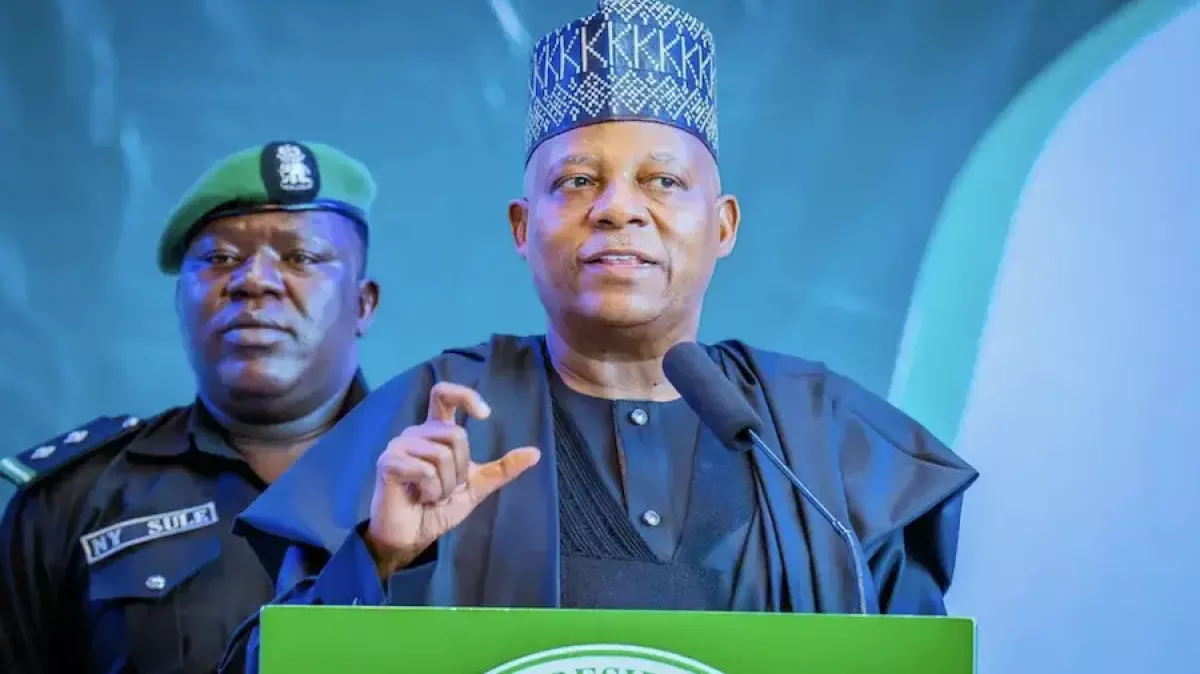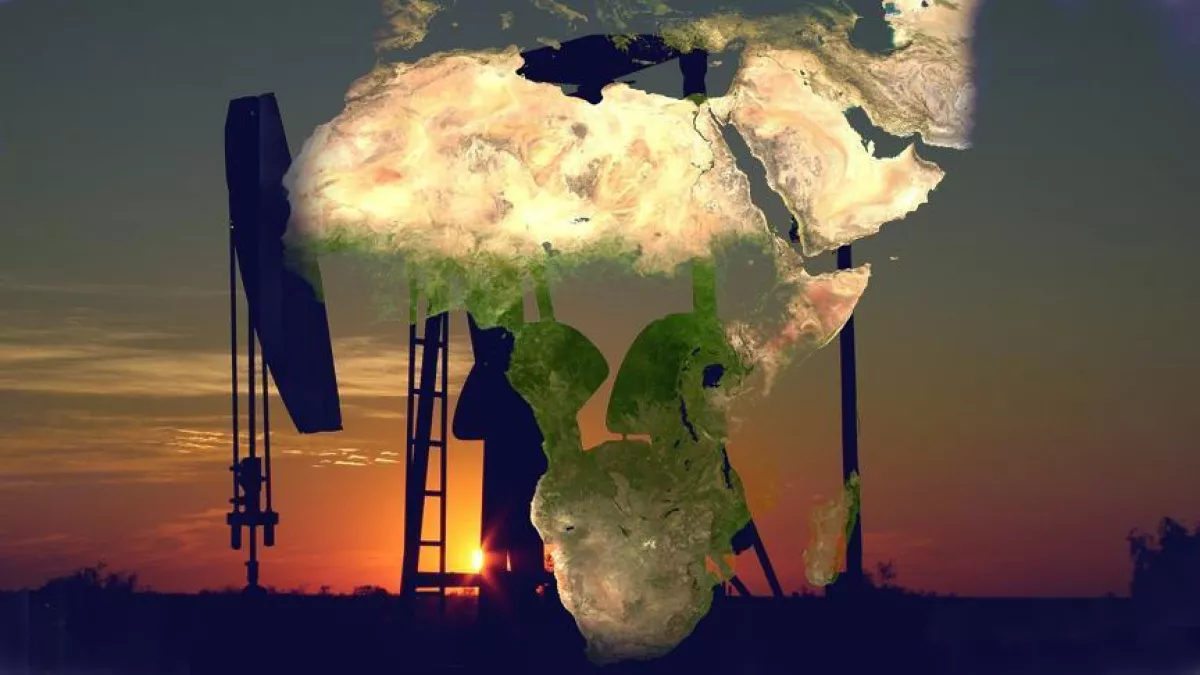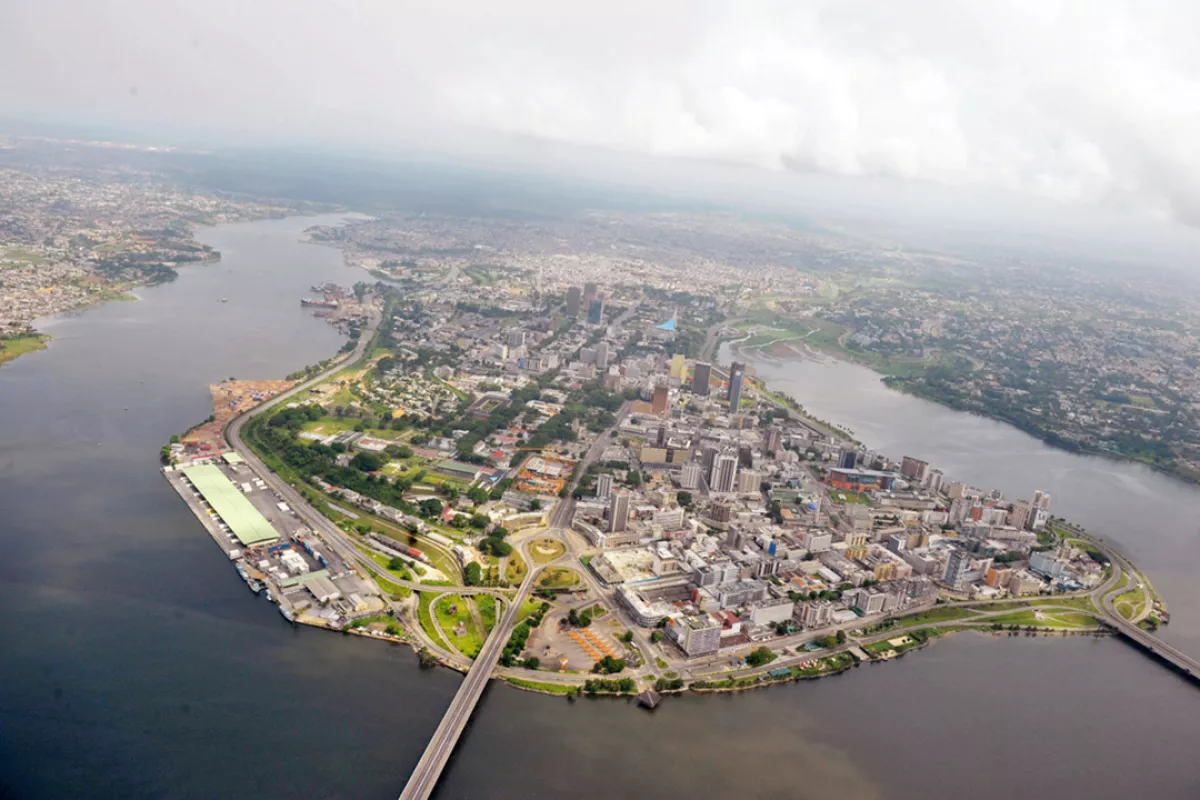Africa's new path: From colonial legacy to economic independence Opportunities and hurdles ahead
By 2050, the economies of African countries could account for a third of global GDP. This figure was announced by Nigeria's Vice President Kashim Shettima at the recent World Economic Forum in Davos for countries within the African Continental Free Trade Area.
A sleeping giant
If African countries continue to develop at this pace, their combined GDP could reach 29 trillion dollars by the mid-21st century. Is this really achievable? And what factors could either facilitate or hinder this progress?
At last year’s similar event in Davos, Kashim Shettima said: “Nigeria is Africa’s sleeping giant; it has woken up to shake the world.” Indeed, the economic growth rates in several African countries over recent years have been quite impressive. For instance, Libya’s economy grew by 12.8% in 2023, compared to a contraction of 3.7% in the previous period. In Senegal, GDP increased by 11.5% over the first nine months of 2024, compared to 3.9% previously. The Seychelles saw a growth of 10.2% over the same period, compared to 3.1% earlier. In 2023, GDP growth averaged 7-8% in Rwanda, Ethiopia, Djibouti, and Ghana. Uganda, Ivory Coast, Mauritius, and Congo saw their economies grow by 5-6%. Overall, in 38 African countries, GDP growth in 2023-2024 exceeded 3%, with only 16 countries experiencing growth below that level.

However, it’s not all straightforward. At WEF-2024, the Vice President of Nigeria expressed regret that the combined GDP of African countries currently stands at only $3.1 trillion, less than 3% of the global GDP. He urged African leaders to work towards increasing this figure.
The "wild" 90s in Africa
From 1970 to 2022, Africa's GDP in current prices increased more than 24 times. However, in 1970, the GDP of African countries accounted for 3.4% of global GDP. By 2022, Africa's GDP had dropped to just 2.8% of the global GDP. Does this indicate a relative economic decline rather than growth for Africa?
Let’s look at the data changes over the years. In the early 1970s, most young African nations, having just freed themselves from colonialism, were beginning their path to independent development. By 1980, Africa’s GDP had reached a record 4.9%. In some years during this decade, GDP growth reached 5-6%. However, in 1987, there was a sharp decline, from 4.1% to 3.1%. It turns out that the "wild" 90s were not only a phenomenon in the post-Soviet space but also in Africa. In 1993, the GDP dynamics on the African continent even turned negative, dropping by -0.24%. The lowest point came in 1995, when the combined GDP of African countries fell to 1.9%. This figure fluctuated around this level in the early 2000s. However, from 2005-2006, Africa’s GDP began to rise, and by 2010 it had reached 3.1% of the global total. In the same year, the growth rate of Africa’s GDP reached 5.9%.
Whether by coincidence or not, the growth of Africa's GDP correlates with the development of trade and economic relations between the continent's countries and China, which began to expand around the same time. In 2004, the trade turnover between African countries and China amounted to 29 billion dollars, and by 2007, it had reached 73 billion. By 2009, China became Africa's largest economic partner, surpassing the United States.
In 2013, Africa was the fastest-growing continent in the world, with a growth rate of 5.6% (compared to only 0.45% in the EU that year). It was expected that by 2023, Africa's GDP growth would exceed 6%. However, the COVID-19 pandemic and the related restrictions severely impacted both the African and global economies.
But amidst the post-COVID recovery, Africa's GDP grew by 5.1% in 2021 (China's was 8.1%, and the EU's was 5.2%). However, Africa's economic growth lacks stability to some extent – in 2022, the continent's average growth rate dropped back to 3.8%. But China's GDP growth that year was only 3%, and the EU's was 3.4%.
As for the third of global GDP in Africa by 2050 – what’s the outlook?
Dreams of the fastest growth – for billions
Much of this forecast is based on the views of economist Charles Robertson, as well as Yvonne Mhango, Michael Moran, Arnold Meyer, Nothando Ndebele, and Johan Snyman, presented in their 2013 book The Fastest Billion: The Story of Africa's Economic Revolution. Anticipating the bewilderment of their critics, the authors redirect their opponents to the rapidly developing "tiger" economies of Asia and Latin America. Their optimistic projection for Africa's GDP to reach $29 trillion by 2050 is linked to several factors.
Primarily, it is tied to the growth of the continent's population, which is expected to double to two billion by the middle of the 21st century. Additionally, the assertion that by 2050 Africa could produce more than the combined output of the U.S. and the EU is supported by the continent's vast natural resource wealth. In particular, oil reserves. Following the discovery of new deposits, Africa's share of global oil reserves has increased to 10%, with revenues from oil sales reaching nearly a trillion dollars annually. Optimistic economists are also hopeful about the substantial foreign investments flowing into Africa.

However, it is important to consider at least the following circumstances. With a few exceptions, foreign companies prefer to invest in the extraction and export of natural resources rather than in manufacturing. African countries are extremely vulnerable to wars and coups due to the largely tribal structure of society, interfaith conflicts, terrorism, and separatism. In some cases, the state is too weak to counter these challenges, and some officials are either incompetent or corrupt. The heavy legacy of colonialism, in the form of extreme poverty and cultural and educational backwardness, still burdens several regions. The epidemiological situation remains critically difficult in many African countries.
African economies are still largely resource-based and heavily dependent on global markets for raw materials and food exports. The way out of this situation lies in creating high added value and developing domestic production. Achieving this requires both investments and infrastructure. The infrastructure deficit on the continent today amounts to trillions of dollars. However, these significant shortcomings also present opportunities for promising economic cooperation with other countries around the world. Both the Vice President of Nigeria, Kashim Shettima, and many other African politicians, public figures, and experts advocate for closer integration among the continent’s countries today.

Continental integration could provide African countries with additional strength in economic negotiations. Pooling the resources of African nations would allow them to reduce costs in several areas, including the development of domestic production and the provision of essential goods for the people. These goods include clothing, housing, transportation, as well as the accessibility of many social services and benefits. A key factor in the continent's development could be the intra-African payment and settlement system (PAPSS), which, by the way, was created by young African professionals. A part of the educated African youth has long been able to work remotely. Efforts are now underway to accelerate the implementation of the Digital Trade Protocol of the African Continental Free Trade Area (AfCFTA), adopted by the African Union leaders in 2024. Contrary to stereotypes, digitalization in Africa is advancing at a rapid pace. In Nigeria alone, there are currently 220 million mobile subscribers and 163 million internet users.
The continuously accelerating technological progress could become a crucial factor for economic and social advancement on the continent. However, mere technical "know-how" or economic mechanisms will clearly not be enough for decisive change and improvement. Only a clearly demonstrated will from the African people, coupled with a new world order, can lead to full liberation from both the consequences of colonialism and the current global injustice.








